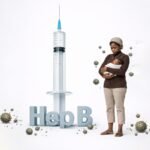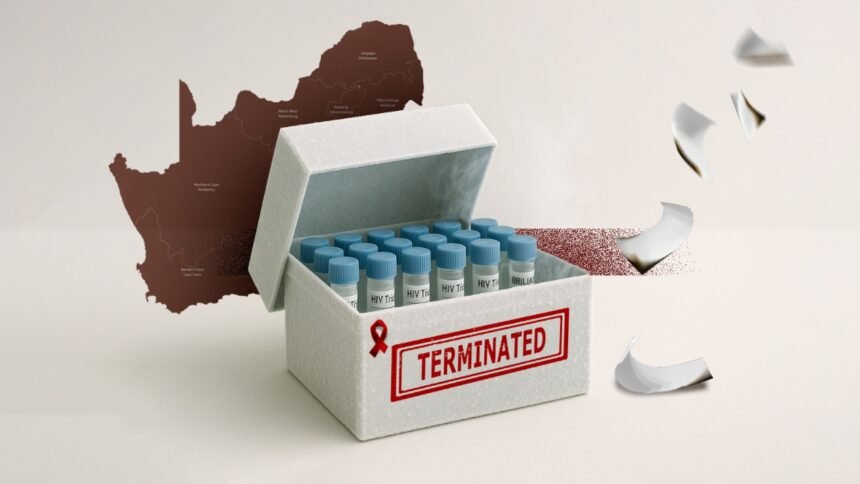Johannesburg — Imagine walking into your lab on a Monday morning, greeted by microscopes humming softly, animal trials progressing on schedule, and vaccine samples queued for analysis. Now imagine an abrupt email instructing you to shut everything down — not tomorrow, not next week, but right now. That’s exactly what happened when the United States suddenly pulled the plug on its funding for one of South Africa’s most ambitious HIV vaccine trials: the BRILLIANT study.
BRILLIANT — short for Broadly neutralizing antibody Research to Interrupt Latent HIV Infections with Antigen Targeting — wasn’t just another line item in a budget spreadsheet. It was a beacon of hope in a country where nearly eight million people live with HIV. The trial, led by South African scientists and executed in collaboration with multiple research institutions, was poised to test a cutting-edge mRNA-based vaccine developed from strains of HIV common in sub-Saharan Africa.
The science was promising. The vaccine design used a mosaic of HIV sequences engineered to provoke a broadly neutralizing antibody response — the holy grail of HIV research. These sequences were not plucked from European or North American viral strains, but derived from real South African patients whose immune systems had naturally controlled the virus. The entire initiative was hailed as a moment of continental pride — a vaccine for Africa, developed by Africa.
But none of that mattered when the funding disappeared.
The axe fell when the U.S. government, under its current administration, implemented sweeping cuts to foreign aid programs, including USAID and health research arms such as PEPFAR. The reasoning, cloaked in vague references to fiscal responsibility and re-prioritisation, left local scientists stunned and scrambling. With $46 million in funding withdrawn without warning, the BRILLIANT trial was forced to a grinding halt just days before clinical trials were due to begin.
At the Desmond Tutu Health Foundation, one of the trial’s primary sites, hundreds of staff were sent home. Researchers, lab technicians, and field workers — many of whom had been recruited and trained for this specific project — found themselves jobless overnight. Entire labs were shuttered. Experimental reagents and biological samples, painstakingly cultivated over months, were destroyed or left to expire.
The broader ripple effects have been catastrophic. Clinics tied to the trial’s infrastructure, which also distributed antiretroviral medications and pre-exposure prophylaxis (PrEP), were closed. Thousands of patients, including pregnant women reliant on antiretrovirals to prevent mother-to-child transmission, were suddenly cut off from care. In provinces where health systems are already stretched thin, the consequences are not hypothetical — they are happening in real time.
Researchers say the blow has been emotional as much as financial. At the University of the Witwatersrand in Johannesburg, Nozipho Mlotshwa, a senior lab assistant, described watching her team disband as one of the most demoralising moments in her career. Years of preparation, study design, ethical clearances, and pilot trials — undone in a single week. One researcher likened the experience to watching someone burn down your house while you’re still inside it.
International experts have condemned the decision, warning that such abrupt cuts risk undoing decades of progress in HIV prevention and treatment. South Africa has made significant strides since the early 2000s, reducing mother-to-child transmission from nearly 15 percent to below 3 percent and expanding access to life-saving medications. But these achievements rest on fragile scaffolding. Remove a key pillar — like research funding — and the entire structure wobbles.
Moreover, BRILLIANT wasn’t just a scientific pursuit; it was a capacity-building exercise. South Africa has emerged as a global leader in clinical trials, praised for its speed, efficiency, and diversity of participants. The experience gained from COVID-19 trials only strengthened its international reputation. To see all of that jeopardised because of foreign political wrangling has left many in the public health field both furious and fearful.
Yet, amid the despair, some voices are calling for resilience. South Africa’s Department of Health is exploring emergency funding options. There is talk of forming a new African Vaccine Research Fund to support indigenous projects insulated from the volatile whims of donor countries. Universities and medical schools are urging students not to lose hope, insisting that scientific ambition cannot be governed by foreign interests alone.
Still, for now, the labs remain dark. Clinical staff have joined unemployment lines. Trial volunteers, who were once eager to make history, are back to worrying about whether they’ll have access to basic healthcare next month. And the most cutting-edge HIV vaccine candidate in Africa is stored in a freezer, its fate as uncertain as the lives it was meant to save.
The tragedy here isn’t just about money or medicine. It’s about momentum. When global partnerships break trust, it becomes harder for science to inspire belief. And belief — in medicine, in progress, in one another — is the cornerstone of any public health breakthrough.
In a world where viruses cross borders effortlessly, funding shouldn’t stop at them either. But, for now, South Africa’s fight against HIV has been left in the cold. And the lab, once full of light and purpose, has been served lunch — cold turkey.











